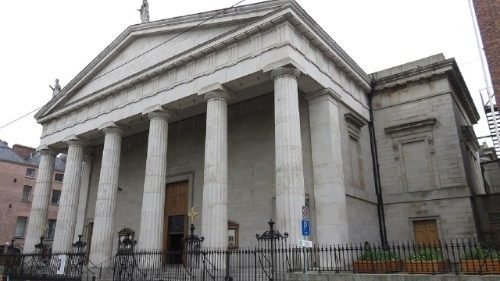As Europe heads to the polls, the Bishop of Elphin in Ireland is inviting Christians in the country to be informed in their choices and vote for the common good.
By Lydia O’Kane
On Friday the 24th May the people of Ireland will head to the ballot box in European elections. They are also being asked to vote in a referendum on the regulation of divorce.
Engage in the political process
Ahead of the polls, Bishop Kevin Doran of Elphin in the west of Ireland has issued a pastoral letter in which he encourages Catholics to get out and vote and “engage in the political process.”
Speaking to Vatican News, the Bishop says in these European elections it’s important to be informed about what the candidate actually stands for.
“I think the challenge for Christians is to examine what the actual policy of the party is and on what the stated intention and perhaps previous history of the candidate might be, because at the end of the day there are a number of very clear core values for Christians.”
Brexit
Despite the fact that the UK is preparing to exit the EU it still has to vote in these European polls. Bishop Doran points out that the lack of decision making on Brexit is having a huge impact on people in Ireland.
“It’s creating tremendous fears about the return of the border which in the past was the cause of significant distress and indeed significant violence in our country and the British need to make up their mind whether they’re actually leaving and leaving in an orderly fashion or whether they’re staying. But this business of two and a half years of not being able work out whether they are coming or going is most unhelpful.”Listen to the report
Referendum on the regulation of divorce.
On Friday the Irish electorate is also being asked to vote in a referendum to remove the Constitutional requirement for a four-year waiting time between the separation of a married couple and their eligibility for civil divorce. If passed, the Government plans to reduce that time to two years.
According to Bishop Doran, “the original intention of the waiting time,…was to give couples space to seek a resolution to their difficulties rather than divorcing “at the first sign of trouble””.
Divorce was made legal in Ireland, by a slim margin, following a 1995 referendum and the Bishop’s concern is that the proposed Constitutional change will have the effect of further weakening the social commitment to marriage.
“What it does do, I think is further weaken the social commitment to marriage because it’s saying right, you can walk away from it at a shorter notice, if you like. I would be just concerned this change, if it were passed, would take away some of the social support that there is for couples looking for some way of resolving their differences.”
The Bishop of Elphin says that the important parallel question that needs to be asked is “whether society is living up to its responsibility to prioritise the family and to provide the human supports that might help couples to resolve difficulties that arise in their relationship, before their differences become irreconcilable.”



